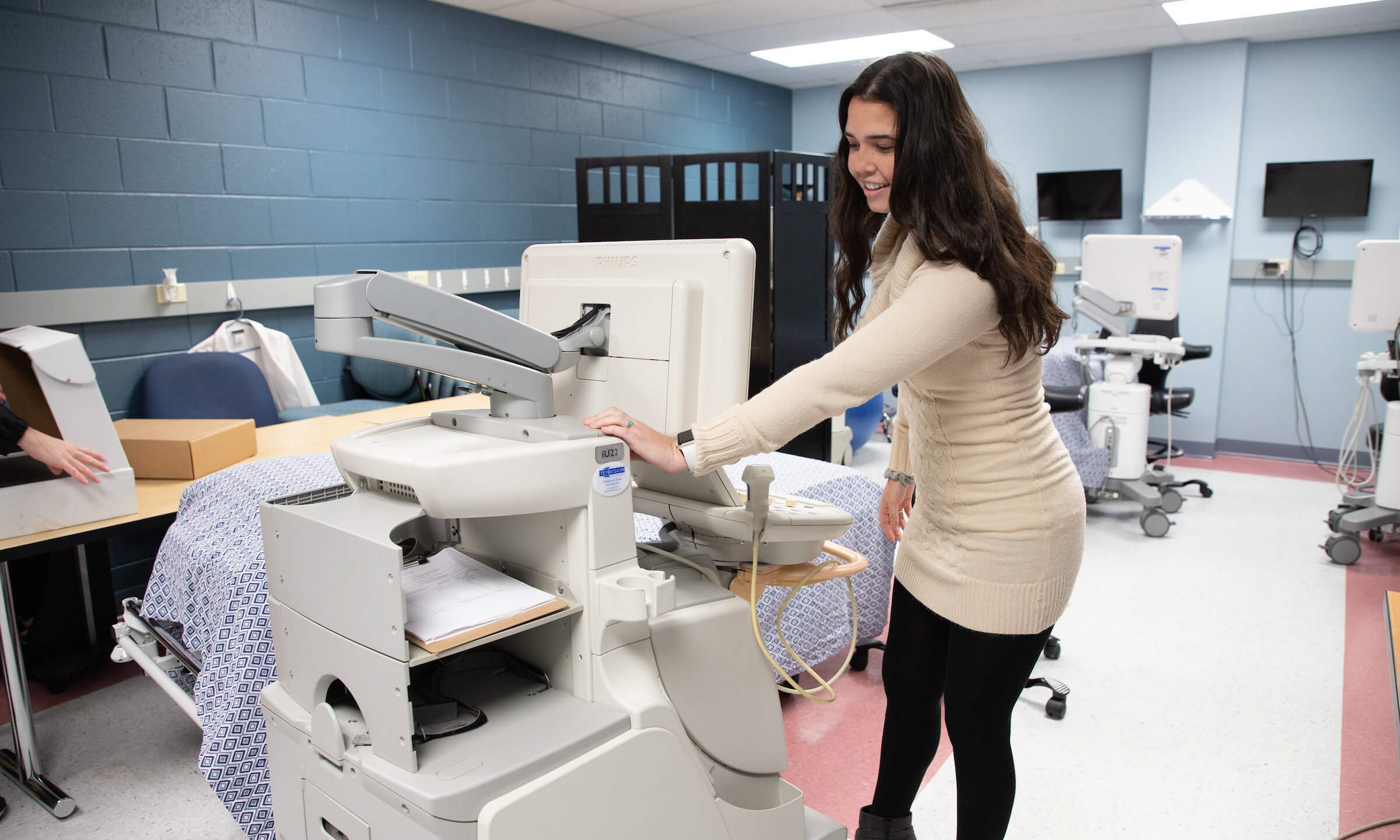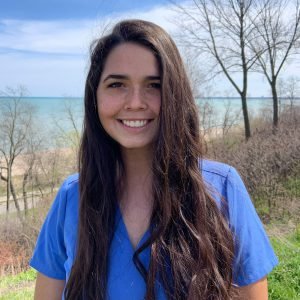
Editor's note: This is one in a series of stories highlighting Concordia's May 2020 graduates.
A tragedy like the one Deb Gibbs experienced as a young girl has the potential to either destroy a person or turn them into a warrior for good.
For Gibbs, thankfully, it was the latter. Following a devastating car crash when she was 10 years old, Gibbs, from Oconomowoc, has made a habit of choosing the most positive path.
The achievement of her Bachelor of Science in Diagnostic Medical Sonography is just the latest demonstration of Gibbs’ perseverance and giving spirit, even in the midst of extreme adversity.
A life-altering incident
At age 10, Gibbs was the victim of a car crash that killed her best friend, her friend’s mother, and the mother’s unborn child. An orthopedic surgeon who was high on prescription medications—obtained by the abuse of his own prescription pad—failed to stop at a red light where the vehicle Gibbs occupied was halted. The surgeon rear-ended the vehicle at 55 miles per hour. The impact caused Gibbs’ vulnerable adolescent frame to compact to between 6-8 inches, her doctors later told her parents.
Gibbs suffered a multitude of face injuries and a traumatic brain injury, the effects of which still plague her today.
Despite the devastation of the deadly crash, Gibbs has used it as fuel for good.

“The accident really has been a turning point in my life,” Gibbs said. “Everything could have easily gone south after that, both from an emotional and physical perspective. The doctors didn’t know if I was going to be able to have basic comprehension skills or be able to verbalize my thoughts properly with the amount of injury I had sustained. But God saved me and has given me the gift of being able to give back to others in ways my family and I didn’t think would ever be possible in those first days after the accident.”
For several years, Gibbs would annually share her story with 8th graders at her alma mater, Silver Lake Intermediate School in Oconomowoc, during their unit on drug safety.
“I always viewed it as: One mind changed can be many lives saved,” Gibbs said. “I felt this responsibility to help those 8th graders who have so much ahead of them in terms of peer pressure to do drugs to try to at least give them the perspective of what can happen.”
Because she had “practically grown up in a hospital,” as she puts it, Gibbs knew from a young age on that she wanted to someday join the medical community. She discovered sonography her junior year of high school through a Medical Explorers elective course offered through her high school. Gibbs, who also has an interest in photography, found sonography to be the perfect combination of health care and the arts.
Overcoming obstacles to give back
Throughout high school, Gibbs worked hard to take on the tough science courses that she knew she’d need to make it in a medical field. She was incredibly successful at them, too, even with learning disabilities that lingered from her brain trauma. Still, she wasn’t prepared for the rigor of the college setting.
“My freshman year, the transition was really hard,” Gibbs said. “I quickly learned that I’d have to put in a lot of extra work to be successful.”
And that’s exactly what she did.
She tapped into practically every academic support system Concordia offered—from peer tutors to drop-in office hours with professors to supplemental instruction study groups.
"God saved me and has given me the gift of being able to give back to others in ways my family and I didn’t think would ever be possible in those first days after the accident.”—Deb Gibbs ('20), B.S. in Diagnostic Medical Sonography
“The professors at Concordia, I can honestly say that you wouldn’t be able to find those professors at a public college,” Gibbs said. “They help you so much one on one. I can’t tell you how many times I went into their offices and looked through every question that I missed to try and understand where I went wrong. They don’t want to see you fail.”
Even Concordia’s setting proved a useful and therapeutic resource. In addition to the faith focus of the university, Gibbs said she was drawn to Concordia because of its location on Lake Michigan (water has always been a calming remedy for life’s stresses).
In the end, her hard work paid off. In her sophomore year, she was accepted into the highly competitive sonography program. Months before she even completed the program, the job offers started pouring in. Gibbs has accepted a joint position at Aurora Summit and Froedtert’s main campus, working in the vascular lab.
The position will allow her to return to her hometown to be near her parents, whom Gibbs cites among her biggest champions.
“I’m excited to return to Oconomowoc to give back to the community that built me,” Gibbs said, “and I’m so thankful to have found my vocation even in spite of this terrible thing that happened.”
Gibbs and her 2020 classmates will be honored at a virtual degree conferral ceremony on Saturday, May 16. They will be celebrated in person at the December commencement celebration. These changes are in response to the Coronavirus. To learn more about Concordia’s response, click here.
— This story is written by Kali Thiel. Kali was Director of University Communications until April, 2025.
If this story has inspired you, why not explore how you can help further Concordia's mission through giving.
